- Pharmacy School

Best Pharmacy School Personal Statement Examples
Check out top 4 sample statements.
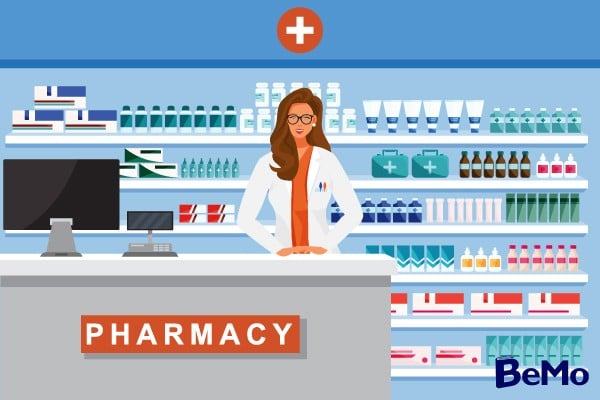
Pharmacy school personal statement examples demonstrate that pharmacy school applications require many different documents to adequately assess you as a potential candidate. In addition to looking at your CV , transcripts, letters of recommendation , and any other required materials, most pharmacy programs ask you to submit a personal statement. After gathering so many materials together, a one-page essay may seem like a trivial item to check off on your application to-do list, but beware of treating the personal statement too lightly! Gaining admission to a graduate pharmacy program certainly requires top grades, competitive test scores, and glowing letters of recommendation from referees who know you well, but these aren’t the only components that admissions committees take into account when evaluating your profile.
Keep in mind that most pharmacy school applicants already have stellar academic records, impressive test scores, and fantastic recommendations. These sorts of accomplishments are important, but are more or less a given in the application process. Furthermore, grades, test scores, and other people’s perceptions of you and the quality of your work are insufficient to determine if you are up for the challenge of the rigors of pharmacy school and the work that follows graduation. With something as serious as pharmacology, it is crucial to determine whether who you are would make you a good fit for the profession. Your knowledge, experiences, and attitudes all play a key role in deciding if you would thrive as a pharmacy student, and eventually, as a pharmacist serving your community. With so many applicants each cycle, admissions officers need some way to gauge these factors in order to narrow the applicant pool down to those they would like to speak to in person, or these days, over the internet. This is where the personal statement comes in! Keep reading to determine what a pharmacy school personal statement measures and how to create one that will make you stand out from other applicants.
>> Want us to help you get accepted? Schedule a free strategy call here . <<
Article Contents 24 min read
4 pharmacy school personal statement examples.
Three days after my thirteenth birthday, my mother was diagnosed with breast cancer. The next twelve months were the toughest in my life, but this experience also gave me something I am forever grateful for—an unwavering passion for pharmacy. I always accompanied my mother to her chemotherapy sessions, where I performed plays for her and the other patients, trying to make them smile. I took an immediate liking to the pharmacist, who returned repeatedly to ask my mother how she was feeling; he explained in detail how these chemo drugs worked and how they interacted with others she had been taking. I listened raptly, entranced by the seemingly magic properties of this medication. It was difficult to watch my mother lose her hair and become frail, but she ultimately made a full recovery, thanks to the wonderful team of medical professionals and to these life-saving drugs. While I lost the naivety of youth that year, I gained a profound new sense of purpose. I was inspired to become a hospital pharmacist and to help patients in times of extreme uncertainty and pain.
Anyone who has ever faced a challenge has probably heard about the deflating nonexistence of a “magic pill” solution. Want to lose weight? There’s no magic pill for that. Trying to learn a new language? No dice. Hard work is always touted as the solution, and rightly so. As a preteen who struggled with confidence, I desperately yearned for a magic pill solution that would make me the bubbly, carefree girl surrounded by laughter in the cafeteria. Instead, the only bubbly aspect of my lunchtime break was the gurgling, broken faucet inside the girl’s restroom. Though unaware of it at the time, the bathroom was not a refuge from the scary, hormonal social scene of junior high, but from my ever-increasing social anxiety. As for a magic pill to rid me of that affliction? I think you know the answer to that.
Though there may not have been a magic pill to rid me of my mounting social anxiety, hard work seemed like an unlikely solution, too. For months, I put on a happy face, trying to convince myself that there was nothing to fear in locker-side conversations and that my worth was not determined by what a group of gangly middle-schoolers thought of me. Eventually, my parents took me to see a psychiatrist, and after many sweaty-palmed conversations, I was diagnosed with social anxiety and handed a prescription for anti-anxiety medication. Of course, the medication I received was no miracle, but with other coping mechanisms, my world began to seem a little more welcoming. Gradually, I interacted with peers more, who became friends. I still had to work hard in therapy, but the capsules I took in the morning each day removed my constant, debilitating worry.
Without the shadow of anxiety darkening my every social interaction, I felt as though I was beginning to become the version of myself I always wanted to be. Years later, I actually was the girl surrounded by laughter in the high school lunchroom. More importantly, though, I took my first chemistry course and discovered my passion. The ways that elements on the periodic table could combine to create entirely new substances fascinated me. I realized that, just like myself, the world around us is in a constant state of flux, with elements combining, reacting to forces, and continuously changing. As I changed from a high school chemistry novice to a university student, one thing remained constant: my passion for chemistry. Delving into how chemistry can be used as a tool inspired me to pursue it as a major, and I worked in various labs on campus investigating how different combinations could be put to use to solve problems, just like my psychiatrist helped me find ways to deal with my social anxiety.
Through my lab work on campus, I grew close with Dr. Johnson – the principal investigator in a campus lab and a faculty member in the pharmacy program. One evening, as we were locking up the lab, Dr. Johnson asked me if I had ever considered becoming a pharmacist. Initially hesitant, I finally accepted Dr. Johnson’s offer to facilitate a shadowing opportunity with one of his former colleagues. My first day in the pharmacy was overwhelming. The rattling of pills in bottles served as the backdrop to the near-tangible pressure of making sure no life-threatening mistakes occurred. I was intimidated by the responsibility, but excited by the chemical interactions that the pharmacist discussed with me. This was the ultimate problem-solving chemistry I had been seeking!
After months of shadowing a pharmacist, I was convinced that I wanted to pursue a career in pharmacy. My experiences with Dr. Johnson and his colleague piqued my interest in what seemed like a never-ending field of discovery. Elements combining, reacting to forces, and continuously changing, but in the human body! Figuring out the puzzles of chemical reactions had always been intriguing, but knowing that I could combine that with helping people recover from sickness, manage chronic disease, or even find the strength to leave the middle school bathroom and have lunch with other students was empowering. The medication I took as a preteen may not have been a magic pill for my social anxiety, but there was certainly some magic in it. I look forward to putting in the hard work to bring that magic to others as a pharmacist. (724 words)
‘I want to do more than just counsel on the proper use of Levothyroxine’ was what I told my father when he asked me what kind of pharmacist I wanted to be. He died shortly after, and it saddens me to think that I cannot tell him now how my vision has evolved. Now, besides being someone in charge of educating patients about their medications, I see pharmacists as scientists who design and produce medicines, evaluate lab results and drug interactions for the benefit of the patient, act as a trusted link between doctors and their patients and, ultimately, impact patients’ lives and contribute to their wellbeing. Pharmacists need to be team players, good communicators, detail-oriented problem solvers, and culturally sensitive professionals, and these are some of the characteristics that I have developed through different endeavors.
As the captain of my soccer team in high school, I was put in charge of leading the team both in and outside of the game. On the field, I acted as a mediator between the players, coach, and referee. Successfully guiding players on the strategies dictated by the coach required excellent communication skills. In my team, I was not only a player; I was a key decision maker and a motivator. Making tactical decisions while supporting everyone in their position showed me the true meaning of being a team player and taught me how to handle pressure well. When I look back at those times and think about the titles we won for our school, I know that the characteristics I developed while I led my team to victory will be put to use when I have to collaborate with a multidisciplinary team of healthcare professionals in the future.
In college, while volunteering at a local pharmacy in my hometown, I helped the pharmacist handle prescriptions and dispense a variety of medications. It became clear to me that following a methodical approach and paying great attention to detail were essential in pharmacy. I made it a point to learn from him, and with time, I found myself being thorough, accurate, and organized not only at the pharmacy but at school as well. I also sought to understand both the cause and the effect of a situation, which is an ability that has guided everything I have done since then, including my research work and my academic activities as a Biology major. Seeing the pharmacist interact with patients was truly rewarding. I watched as he explained the treatment, potential side effects, and desired outcomes to them while evaluating the interactions between the drugs they were taking in order to avoid any harm. This showed me that, besides being a problem-solver and having analytical abilities, pharmacists need to be empathetic and care for their patients. Very soon I found myself interacting with people who visited the pharmacy and exercising the same skills the local pharmacist possessed.
This interaction with people helped me refine different characteristics that I bring with me to this new journey. One of the most significant is, perhaps, the cultural awareness that I developed in my shadowing work at the university hospital. Having a patient who does not speak the language, calming them down, and finding a translator, for instance, or understanding how different cultures view certain health practices and looking for ways to respectfully adapt to them has allowed me to learn and practice cultural sensitivity, which is crucial in a multicultural society, such as in Canada, where the population is becoming more diverse. By seeing pharmacists in action in the university hospital setting, I gained insight into the every-day lives of healthcare professionals who work with patients from every background imaginable. Moreover, I also came to realize the pressure to which pharmacists are exposed when the correct medication has to be provided with extreme urgency. Working under pressure is something I do well since my soccer days, so instead of deterring me, this motivates me.
If anyone were to ask me today about the kind of pharmacist I want to be, I would have a much stronger answer than the one I gave to my father many years ago. I want to be the kind of pharmacist that uses their knowledge, skills, and compassion to improve their patients’ health and one that works with other health care professionals to maximize health outcomes. Furthermore, I want to have patients trust me enough to let me become involved in their lives as I guide them on their medications and help them improve their quality of life. Besides all this, and on a much more personal level, I want to be the kind of pharmacist that will make my father proud. (781 words)
“Why would you want to be a pharmacist?” was the question my father asked me when I shared my decision to pursue pharmacy school. This was a question I had asked myself many times as I solidified my decision to pursue this dream. I shared my experience standing in line at a local pharmacy to fill a prescription. This was something I did every month, and not an experience that I had given much thought, however; when I saw the person in line in front of me experience great distress at learned the price of her daughter’s prescription, I realized that not all patrons had the same experience as me. To many, a trip to the pharmacy may be filled with questions over how their medications will affect their body or their ability to afford groceries for the month. The woman in line was worried about the high prescription price in light of other expenses in providing for her family. As I saw the pharmacist assist her in finding a less costly alternative, and the ease come over the woman as she learned that her family would be alright, I had my first glimpse into my future profession as a pharmacist.
This day sparked my interest in attending pharmacy school, but also a desire to further explore what it meant to be a pharmacist. While donating blood to the Red Cross, I learned of the growing need for pharmacist volunteers, with many underserved communities necessitating additional support. As I was giving blood, I talked with a current pharmacist volunteer, ‘Samantha,’ who recounted her responsibilities to me when I expressed an interest in wanting to learn more. ‘Samantha’ explained why she felt pharmacists made wonderful volunteers in the community. She reflected that pharmacists have the knowledge to make an impact and valuable experience conversing daily with people of all backgrounds. As I talked with ‘Samantha,’ I thought about my own capacity to strike up a conversation with people I had not met before. I recalled that my friends often joke about how I could talk to anyone about anything, a trait I admire in myself. Everyone is skilled in different ways, but my ability to talk to anyone I come across will be an asset to my future as a pharmacist. I look forward to new experiences every day and speaking with new patrons to get to know their needs and concerns. In addition, I hope to volunteer in my community as a pharmacist to expand the number of people I can impact with my loquacious disposition as I guide them towards safe medication use.
With the personality to be a efficacious pharmacist, I looked to build my experience in the healthcare profession. I secured a volunteer position aiding a hospital pharmacist in educating health professionals on drug side effects. I was responsible for designing educational posters for use in counseling patients about their medications. I was eager to use my artistic talents to help people seeking to understand their prescriptions, like the woman in line ahead of me at the pharmacy. As I designed posters, I asked my friends and family to look at my drafts and provide feedback. I asked if the information was conveyed in a clear, approachable way and I learned that what is clear to one person – such as myself – can be viewed differently by another person with a different background or set of life experiences. As a pharmacist, I will utilize educational materials that have gone through arduous testing to ensure they can deliver the necessary information, but I will also aim to understand community members’ experiences and how this may impact their understanding and outlook towards their medication.
I explained to my father that, to me, pharmacy is about conversation. As patrons share with you why they have come in to the pharmacy that day, or what is troubling them, it is important to truly listen. This is the starting point for the conversation needed to understand their concerns, provide appropriate medication, and educated them as to how best proceed. Although my friends joke about my ability to talk to anyone, this is a trait that will go far in serving my community as a pharmacist. (702 words)
Here're some more tips for your interview:
Pharmacy school personal statements are a crucial aspect of your application because they help to separate you from the crowd of other accomplished applicants. After all, grades, test scores, and letters of recommendation only go so far in presenting who you are and your talents and strengths. Even a CV does not reveal enough about you and your experiences to adequately reflect your ability to succeed in pharmacy school and beyond. Imagine trying to measure a candidate’s level of motivation or ability to persevere through adversity by looking at his or her GPA! Luckily, you have the power to present the strengths and qualities that would make you an incredible future pharmacist and make your case for admission through your personal statement.
Essentially, this short essay asks you to reflect upon who you are, what led you to want to study pharmacology specifically, and why you would be great at it. Most pharmacy programs in the United States use a central application portal called PharmCAS (Pharmacy College Application Service) to distribute application materials like transcripts, test scores, and personal statements to individual university programs. Personal statements for PharmCAS must be 4500 characters or less, including spaces. It is crucial to draft a personal statement that is within the character limit because the online portal will not allow you to save or submit a personal statement that exceeds 4500 characters. As you prepare to write your personal statement, be sure to verify that your program(s) of choice use PharmCAS for receiving application materials. If you find that your university does not utilize PharmCAS, check the program’s website for specific instructions regarding the character or word limit for personal statements.
Canadian pharmacy program application expectations differ from school to school. The University of Toronto’s PharmD program, for example, does not require a personal statement of any kind.
A common mistake that pharmacy school applicants make is relying upon cliches to discuss their motivations for pursuing a career as a pharmacist. Cliches read as tired and don’t reveal anything meaningful about an applicant. Moreover, many personal statement cliches like expressing a desire to “help people” are so vague that they fail to address an applicant’s desire to study pharmacology precisely. There are a multitude of careers that help people: teachers, doctors, non-profit workers, and more. Similarly, a fascination with science applies to any number of medical professions, researchers, scientists, and so on. In your personal statement, you must clearly express why you want to go to pharmacy school specifically.
Additionally, admissions officers want to ensure they admit only those applicants who demonstrate their capability of handling the demanding course work as well as possess the correct attitude and motivation to pursue a career in pharmacy. You’ve probably heard that past behavior is one of the best predictors of future behavior, and for good reason. For instance, if you have already persevered and exhibited your resilience, work ethic, and determination in past experiences, chances are you will exhibit those same skills in a pharmacy program, no matter the challenges you may face. Showing your skills through relevant anecdotes and relating them to core attributes you possess that will ensure your future success as a pharmacist goes a long way to separate you from an already qualified pool of applicants.
Pharmacy personal statements also assess the value you will add to your matriculating class, the program, and the institution overall. You want to prove you are a mutually beneficial fit for your pharmacy program of choice. As you craft your personal statement, you will likely need to create several versions that cater to each of the institutions to which you plan to apply, highlighting the attractive elements of each program that motivated you to apply and explaining how you would thrive in such an environment and contribute to the program’s culture and mission. Prove that the school would be missing out on an exceptional candidate if you were not offered admission!
How Are Pharmacy Personal Statements Structured?
Although each program has different requirements, pharmacy personal statements are generally around a page long, or 4500 characters for most applications in the United States, and should be structured similar to a traditional, academic paper. Your personal statement should have a clear introduction, a body composed of about 2-3 paragraphs, and a marked conclusion. It is important that you transition well among each of these elements to enhance the flow and overall readability of your statement. The logical progression of your ideas should also be well-defined so that admissions officers can easily follow your train of thought. Keep in mind that each individual reading your personal statement will be looking at many, many personal statements in any given sitting, which can get exhausting. Make their jobs easier by ensuring that your statement is easy to read and makes your points both concisely and clearly. Given the myriad personal statements each admissions officer must review, your statement must be quite unique and engaging in order to stand out and be memorable.
Contrary to popular belief, it is not the best choice to start your statement at the beginning by working on the introduction. Part of the reason you should avoid starting with the introduction is because an introduction typically sets the stage for what you discuss in the body of your statement. If you don’t have the content of the body prepared, it is unlikely that you will be able to craft an appropriate introduction. Rather, you want to plan out the body of your statement first by creating a rough outline of the topics you wish to address in your statement to give the reader an overview of what led you to pursue pharmacy school, as well as the experiences and qualities that would make you an excellent addition to the program of your choice, and ultimately, a great pharmacist. Utilizing an outline to plan out your response also takes a bit of the pressure off of you as a writer so that you are not focused on making every single sentence perfect until you have a general idea of where you are going with your statement. After you have the “bones” of your statement planned out via an outline structure, begin to add the “meat” little by little, gradually expanding your outline with more substantial content, including anecdotes that serve as evidence or justification for the claims that you make.
Pharmacy personal statements are an opportunity to show the admissions committee your personality, values, and goals. With this in mind, think carefully about which experiences you want to emphasize and the skills and values you want those experiences to illustrate. “Illustrate” is a key word here; be sure to show your readers what you mean instead of telling them. For example, don’t just say you are a lifelong learner. Show your readers evidence that demonstrates you are a lifelong learner by narrating and reflecting upon experiences in which you were continuously eager to learn new information. One of the most important tips to remember as you plan the outline for and later write your pharmacy personal statement is to be true to yourself. When applicants communicate what they believe admissions committees want to hear, or in this case read, their inauthenticity is blatantly evident. Being genuine not only serves you in the short-term by creating a personal statement that reads as truly authentic, which is always more convincing and impactful, but it is to your benefit in the long run as well. After all, pharmacy school is 4 years long, which isn’t exactly an insignificant time commitment. You should aim to gain admission into a program that wants you for who you truly are and the potential you’ve demonstrated, and the only way of guaranteeing this is to show who you truly are through your personal statement.
Once you have crafted a full outline, begin to write a rough draft of your body paragraphs. At this point, you still do not need to worry about choosing the best words or making sure that the stylistic elements of your body paragraphs are top notch. Focus on getting your thoughts out on paper in a way that makes sense and flows well in terms of a logical progression of ideas. So, how many experiences should you write about in your personal statement? While there is no concrete number you should aim for, do be selective about which experiences you choose to include. Think quality over quantity. Essentially, as you answer the question “Why do you want to be a pharmacist?”, trace the origin of your interest in studying pharmacy through each stage of its development. Given the 4500-character limit, at least for most pharmacy programs in the United States, you will have to limit your discussion to two to three experiences, depending upon the level of depth of your discussion of each experience.
Which kinds of experiences work best? Keeping in mind that the experiences you decide to address and the way in which you write about them should be authentic to you, aim for experiences that involve exposure to the field. Of course, exposure to pharmacy can come in many forms! Perhaps you were exposed to pharmacy and the positive impact it can make in people’s lives through your own use of prescribed pharmaceuticals to treat a chronic illness, which inspired you to learn more about how medications work. Or, maybe you were considering a career in either medicine or pharmacy, decided to shadow physicians and pharmacists alike to accrue more knowledge about the day-to-day responsibilities of each profession, and found yourself enamored with your pharmacy shadowing experience. In any case, make sure that you are specific about which aspects of your experience were particularly influential in your developing desire to study pharmacy and what convinced you that you would make a great pharmacist yourself!
Once you have completed your rough draft, take a day or so away from your statement so that you can achieve mental distance from your writing in order to review it with fresh eyes the next time you read it. With this new perspective, revise your body paragraphs, choosing the strongest vocabulary possible to convey your meaning. Remember, though, that it is important to be authentic, so don’t abuse your thesaurus! Work on strengthening the wording of your statement and try reading it out loud to see how well each sentence fits together. Rinse and repeat.
Tip #1: Be authentic.
The personal statement should explain why you want to study pharmacy, so your discussion of this should be true to your experiences. Instead of writing what you think would be appealing to admissions officers, present a genuine account of why you want to be a pharmacist and the experiences that led you to that conclusion. Inauthenticity is actually quite easy to detect, so it is always preferrable to be authentic.
Tip#2: Start early.
The strength of your personal statement is crucial, and with limited space to show the admissions committee who you are and why you are passionate about becoming a pharmacist, you will likely go through many drafts before you arrive at the final product. In order to accommodate multiple rounds of edits and give yourself time to gain mental distance from each draft before revising again, you must start early.
Tip#3: Get expert feedback.
Notice that we suggest expert feedback, not just feedback in general. Everyone can give you an opinion on the strength of your pharmacy school personal statement, but only a select few can give you constructive criticism that will actually serve to improve your statement. Trusted professors, pharmacist mentors, or admissions experts like the ones at BeMo are all great choices to give you informed and insightful advice.
Tip#4: Be concise.
Since you have limited space to convince your reader that you are passionate about pursuing pharmacy and would make an excellent future pharmacist, every word counts. Recount your experiences in a succinct manner so that you can maximize your character count and include valuable reflections that will demonstrate how strong of an applicant you are!
Tip#5: Avoid cliches.
While it can definitely be tempting to rely upon commonly used motivations for pursuing pharmacy school like “to help others” or “to give back,” leaning upon these cliches will only hurt your application. Even though part of your motivation for becoming a pharmacist may genuinely be to help others, you need your statement to stand out. If hundreds of other applicants express the same sentiment, your sincere altruism may be lost in the crowd of other personal statements communicating the same thing. Further, helping others and giving back can be achieved in various careers. Your job is to convince the reader that you want to make that impact through pharmacy.
If you are applying to pharmacy schools in the United States, check out PharmCAS’ website to see if your program utilizes this application service. If so, your personal statement will be restricted to 4,500 characters, including spaces. If not, check out the program’s website to discover that school’s specific personal statement requirements.
On the other hand, if you are applying to pharmacy schools in Canada, you will need to go directly to that school’s website to see its specific requirements. Some programs don’t require a personal statement at all.
No, some schools like the University of Toronto don’t require a personal statement or essay of any kind. Double check the website(s) of your program(s) of choice to see what the specific requirements are.
Unless directed otherwise by your program of choice, your pharmacy personal statement should be structured like a traditional academic essay. Include an introduction, 2-3 body paragraphs, and a conclusion. Please see above for further details.
Overall, your personal statement should answer the question “Why do you want to be a pharmacist?” or “Why do you want to go to pharmacy school?” Your answer to this question should show your reader why you want to pursue this career instead of telling them. Show your desire to become a pharmacist by discussing key experiences that sparked your interest in pharmacy and developed that interest into a true passion. Include experiences that exposed you to the profession, whether that is as a patient, working as a pharmacy assistant, or shadowing a pharmacist.
Although it may seem illogical, your introduction should be one of the last things that you write. The introduction of your personal statement must introduce the content that appears in your 2-3 body paragraphs, so it makes sense to write your body paragraphs first in order to know which content you are introducing. In order to capture your reader’s attention from the very beginning of your personal statement, the first sentence of your introduction should employ an opening hook that uses some sort of creative element to generate interest in your statement. Opening hooks often use relevant quotes, pieces of dialogue, or vignettes of a particularly impactful experience to “hook” the reader and make them more invested in the document before them. Following your opening hook, you should discuss the significance of it, whether that is how a quote relates to your life or an explanation of the significance of the situation described in your vignette. Finally, your introduction should establish your interest in pharmacy and set the stage for the more substantial content that will follow in subsequent body paragraphs.
The conclusion of your personal statement should not just be a summary of the content covered. Rather, it should be comprised of reflections upon the experiences you’ve described, draw connections among your experiences, and/or discuss future goals in the field of pharmacy. Make sure that the last sentence of your conclusion leaves the reader wanting to know more about you. How memorable your statement is depends heavily on your last sentence, so you should use a creative approach as you did with your opening hook. Some applicants find it useful to refer back to their opening hook in a creative way. Try out different endings and see which works best with the statement you’ve written!
Want more free tips? Subscribe to our channels for more free and useful content!
Apple Podcasts
Like our blog? Write for us ! >>
Have a question ask our admissions experts below and we'll answer your questions, get started now.
Talk to one of our admissions experts
Our site uses cookies. By using our website, you agree with our cookie policy .
FREE Training Webclass:
How to make your pharmacy application stand out, (and avoid the top 5 mistakes that get most rejected).
- Applying to Uni
- Apprenticeships
- Health & Relationships
- Money & Finance
Personal Statements
- Postgraduate
- U.S Universities
University Interviews
- Vocational Qualifications
- Accommodation
- Budgeting, Money & Finance
- Health & Relationships
- Jobs & Careers
- Socialising
Studying Abroad
- Studying & Revision
- Technology
- University & College Admissions
Guide to GCSE Results Day
Finding a job after school or college
Retaking GCSEs
In this section
Choosing GCSE Subjects
Post-GCSE Options
GCSE Work Experience
GCSE Revision Tips
Why take an Apprenticeship?
Applying for an Apprenticeship
Apprenticeships Interviews
Apprenticeship Wage
Engineering Apprenticeships
What is an Apprenticeship?
Choosing an Apprenticeship
Real Life Apprentices
Degree Apprenticeships
Higher Apprenticeships
A Level Results Day 2024
AS Levels 2024
Clearing Guide 2024
Applying to University
SQA Results Day Guide 2024
BTEC Results Day Guide
Vocational Qualifications Guide
Sixth Form or College
International Baccalaureate
Post 18 options
Finding a Job
Should I take a Gap Year?
Travel Planning
Volunteering
Gap Year Guide
Gap Year Blogs
Applying to Oxbridge
Applying to US Universities
Choosing a Degree
Choosing a University or College
Personal Statement Editing and Review Service
Guide to Freshers' Week
Student Guides
Student Cooking
Student Blogs
- Top Rated Personal Statements
Personal Statement Examples
Writing Your Personal Statement
- Postgraduate Personal Statements
- International Student Personal Statements
- Gap Year Personal Statements
Personal Statement Length Checker
Personal Statement Examples By University
Personal Statement Changes 2025
- Personal Statement Template
Job Interviews
Types of Postgraduate Course
Writing a Postgraduate Personal Statement
Postgraduate Funding
Postgraduate Study
Internships
Choosing A College
Ivy League Universities
Common App Essay Examples
Universal College Application Guide
How To Write A College Admissions Essay
College Rankings
Admissions Tests
Fees & Funding
Scholarships
Budgeting For College
Online Degree
Platinum Express Editing and Review Service
Gold Editing and Review Service
Silver Express Editing and Review Service
UCAS Personal Statement Editing and Review Service
Oxbridge Personal Statement Editing and Review Service
Postgraduate Personal Statement Editing and Review Service
You are here
- Mature Student Personal Statements
- Personal Statements By University
- Accountancy and Finance Personal Statements
- Actuarial Science Personal Statements
- American Studies Personal Statements
- Anthropology Personal Statements
- Archaeology Personal Statements
- Architecture Personal Statements
- Art and Design Personal Statements
- Biochemistry Personal Statements
- Bioengineering Personal Statements
- Biology Personal Statements
- Biomedical Science Personal Statements
- Biotechnology Personal Statements
- Business Management Personal Statement Examples
- Business Personal Statements
- Catering and Food Personal Statements
- Chemistry Personal Statements
- Classics Personal Statements
- Computer Science Personal Statements
- Computing and IT Personal Statements
- Criminology Personal Statements
- Dance Personal Statements
- Dentistry Personal Statements
- Design Personal Statements
- Dietetics Personal Statements
- Drama Personal Statements
- Economics Personal Statement Examples
- Education Personal Statements
- Engineering Personal Statement Examples
- English Personal Statements
- Environment Personal Statements
- Environmental Science Personal Statements
- Event Management Personal Statements
- Fashion Personal Statements
- Film Personal Statements
- Finance Personal Statements
- Forensic Science Personal Statements
- Geography Personal Statements
- Geology Personal Statements
- Health Sciences Personal Statements
- History Personal Statements
- History of Art Personal Statements
- Hotel Management Personal Statements
- International Relations Personal Statements
- International Studies Personal Statements
- Islamic Studies Personal Statements
- Japanese Studies Personal Statements
- Journalism Personal Statements
- Land Economy Personal Statements
- Languages Personal Statements
- Law Personal Statement Examples
- Linguistics Personal Statements
- Management Personal Statements
- Marketing Personal Statements
- Mathematics Personal Statements
- Media Personal Statements
- Medicine Personal Statement Examples
- Midwifery Personal Statements
- Music Personal Statements
- Music Technology Personal Statements
- Natural Sciences Personal Statements
- Neuroscience Personal Statements
- Nursing Personal Statements
- Occupational Therapy Personal Statements
- Osteopathy Personal Statements
- Oxbridge Personal Statements
- Pharmacy Personal Statements
- Philosophy Personal Statements
- Photography Personal Statements
- Physics Personal Statements
- Physiology Personal Statements
- Physiotherapy Personal Statements
- Politics Personal Statements
- Psychology Personal Statement Examples
- Radiography Personal Statements
- Religious Studies Personal Statements
- Social Work Personal Statements
- Sociology Personal Statements
- Sports & Leisure Personal Statements
- Sports Science Personal Statements
- Surveying Personal Statements
- Teacher Training Personal Statements
- Theology Personal Statements
- Travel and Tourism Personal Statements
- Urban Planning Personal Statements
- Veterinary Science Personal Statements
- Zoology Personal Statements
- Personal Statement Editing Service
- Personal Statement Writing Guide
- Submit Your Personal Statement
- Personal Statement Questions 2025
- Personal Statement Changes 2024
Pharmacy Personal Statement Examples
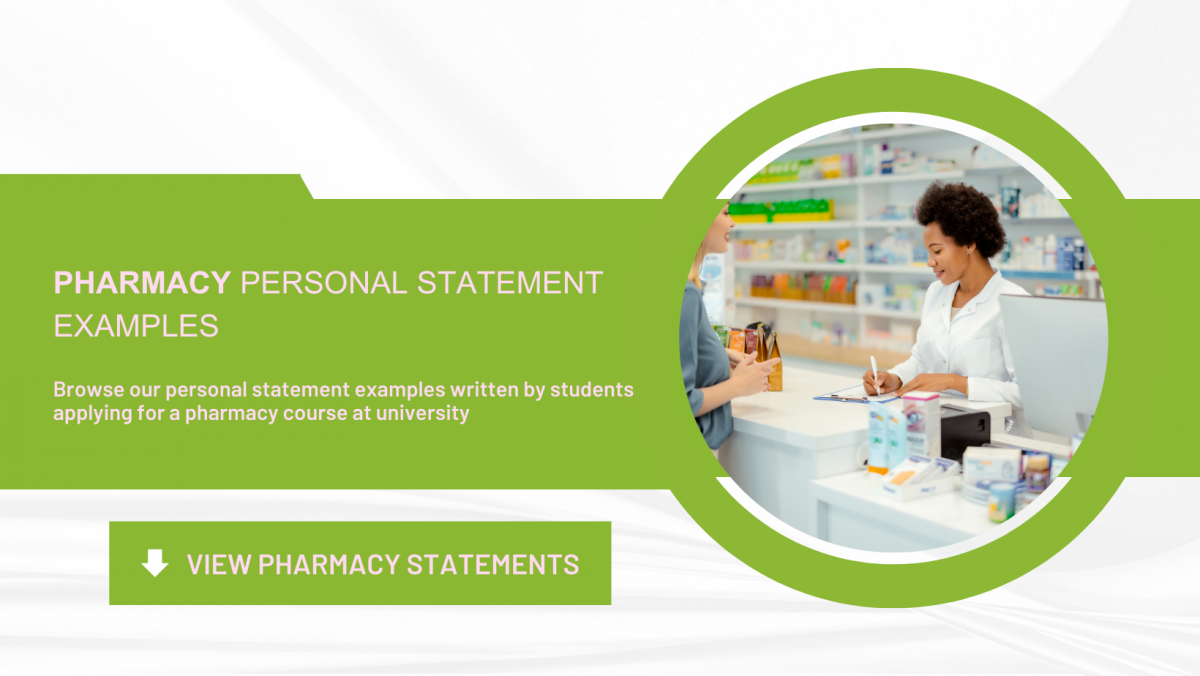
What is a pharmacy personal statement?
Writing a personal statement for pharmacy is a chance to sell yourself to the admissions tutors and show them why you would make a great phramacy candidate.
It’s a place to describe your skills and strengths, as well as your career plans.
You are allowed up to 4,000 characters to explain why you are applying for a pharmacy degree, so you need to make sure your statement is as polished as possible to stand out from the crowd.
How do I write a good pharmacy personal statement?
Good pharmacy personal statements always use evidence to support their claims. You need to convince admissions tutors that you’re a good match for the programme, so if you claim to be committed or inquisitive, then use examples from your life to back it up.
To write a great pharmacy personal statement you need to start early, brainstorm some ideas, and then begin your first draft.
This will then need to be carefully revised and edited before asking family and friends for feedback. Incorporate their comments and suggestions, and see how it is improved before asking them to look at it again.
Read through our pharmacy personal statement examples to give you an idea of what a good pharmacy statement looks like.
Make sure you proofread your statement for grammar and spelling before sending it off, and if you feel you need a little extra help, take a look at our personal statement editing services .
What should I include in my pharmacy personal statement?
Many students choose to start their statement by picking a specific aspect of pharmacy and explaining why they enjoy it, e.g. drug chemistry, cardiovascular and renal systems, etc.
Admissions tutors want candidates that are as passionate about the subject as they are.
As well as your motivations for studying pharmacy, think about your hobbies and extracurricular activities too. What skills have you learned from these and how will these help you in your pharmacy degree?
Talk about any work experience placements you have completed, e.g. shadowing a doctor or nurse, or someone in a similar medical/clinical profession. What did you take away from this experience? Do you feel you have all the necessary personal traits and qualities that make a good pharmacy student?
Your wider reading is also important, so it's worth mentioning anything you've read recently that you found interesting and why. Generally, admissions tutors like students who express their views and opinions, and can back them up with evidence.
For more help and advice on what to write in your pharmacy personal statement, please see:
- Personal Statement Editing Services
- Personal Statement Tips From A Teacher
- Analysis Of A Personal Statement
- The 15th January UCAS Deadline: 4 Ways To Avoid Missing It
- Personal Statement FAQs
- Personal Statement Timeline
- 10 Top Personal Statement Writing Tips
- What To Do If You Miss The 15th January UCAS Deadline.
What can I do with a pharmacy degree?
There are many different career options open to those wishing to study pharmacy at university. These include:
Jobs directly related to your degree include:
- Community pharmacist
- Hospital pharmacist
- Research scientist
Jobs where your degree would be useful include:
- Clinical research associate
- Higher education lecturer
- Medical sales representative
- Medical science liaison
- Pharmacologist
- Product/process development scientist
- Regulatory affairs officer
- Research scientist (life sciences)
- Science writer
- Toxicologist
For more information about careers with a pharamcy degree, please see Prospects and the National Careers Service .
What are the best UK universities for pharmacy?
Currently, the best universities in the UK for studying pharmacy and pharmacology are:
For more information about pharamacology university rankings in the UK, please see The Complete University Guide and SI UK .
Related resources
A level results day.

Find out more
Clearing Guide

Replying To UCAS Offers

Waiting For University Offers

How To Apply To University

8 Personal Statement Mistakes To Avoid

7 University Interview Mistakes

Uni Open Day Tips


How to Write a Compelling Pharmacy School Personal Statement
Written by Kelly Jeroski
July 12, 2022

If you’re applying to any higher education program, you’re most likely going to run into something called a “personal statement”. Pharmacy school is no exception, and learning how to write a compelling and unique personal statement is a key part in getting accepted to school. Read on to find out how to write one that stands out!
What is a Personal Statement?
A personal statement serves as a way to highlight your skills, interests and experiences. Personal statements tend to be somewhat autobiographical, but it is not just a lengthy personal essay of your entire life story.
Personal statements are also not a regurgitation of all the information you’ve already included in your application and cover letter. Think of your personal statement as more of a narrative, but still keep it informative.
In writing a personal statement, you’re aiming to give the school or program you’re applying for a snapshot of who you are and why you want to be considered for whatever position. They are as much about how you write as what you write. Schools will receive hundreds of personal statements– make sure yours stands out!
What is the Difference Between a Personal Statement and a Cover Letter?
A cover letter generally serves as a means to sell yourself to a company or school. It introduces your resume and all your relevant school and employment history. A personal statement, however, is meant to be more creative and introduce the school to you as a person in an engaging format.
While an application can come off as just a list of what you’ve done, a personal statement frames all your accomplishments in a way that connects your real-life influences with the dates and degrees on your application.
What is the Best Format for a Personal Statement for Pharmacy School?
Think of your personal statement as a narrative essay outlining how you got to where you are today, as well as where you want to go next. Within this story, relate back to pharmaceuticals and medicine and healthcare fields in an organic way. You’ve chosen this path for a reason, what are the steps that got you here?
What Questions Should I Answer in my Personal Statement?
Some helpful questions to aim to answer throughout your personal statement are:
✅ Why do I want to be a Pharmacist?: Think through the times where you have admired pharmaceuticals or where they have most impacted you. Or, think about when you fell in love with medicine and helped people through pharmaceuticals.
✅ What different pharmaceutical paths would I be interested in pursuing?: Are you interested in nuclear pharmacy? What about private pharmaceutical production? If you have a specific niche in mind for a career path, use this space to talk about your interest.
✅ What makes me an excellent and unique candidate for this program?: Have you taken any specialized courses that make you uniquely qualified for this program? Have you had any outstanding internships or positions within the healthcare world?
✅ What are my strengths?: Where do you excel? What specific strengths could you bring to the program and the team you work with? Use this space to highlight your gifts.
✅ Are there any gaps or inadequacies in my application? How can I explain them here?: If you have anything on your application that may confuse someone not familiar with your life circumstances, try to concisely explain it here. Admissions counselors want to be able to give you the best shot possible at being accepted, and sometimes this requires you being up-front about gaps or missing pieces to your work history.
What Should I Avoid in My Personal Statement?
❌ Don’t just repeat what you’ve said in your application. There’s a place for a more sterile, list-based amalgamation of your achievements, but your personal statement is not this place. Admissions staff will learn a lot more about you if you’re creative with your personal statement.
❌ Don’t steal someone else’s work. Plagiarism will disqualify you from admission to pharmacy programs, and it’s also just bad practice for life in general.
❌ Avoid cliches throughout your writing. It may have been a dark and stormy night when you were born, but that is neither relevant nor original. Find fresh ways to tell your story and engage your readers.
❌ Avoid grammar and spelling mistakes. These can be avoided through several rounds of revision
What Are Admissions Counselors Looking for in a Personal Statement?
What makes a good candidate may vary from program to program, but there are some general things that admissions counselors look for when reviewing personal statements from applicants:
- How have you grown over the years?
- Is your personal statement well-written? Does it show care, consideration and edits?
- Are you up for the challenge of Pharmacy school?
- Do you fit our program?
What Are the Steps to Form a Compelling Personal Statement?
The creative process for a piece like this may vary form applicant to applicant, but the general steps are as follows
1. Brainstorm
This step can be messy, and is generally the most customizable of the process. To start your brainstorming process, think about all the reasons you’re considering pharmacy school and why this program should consider you. This is also a good place to start thinking about what makes you stand out from other candidates, as well as beginning to organize your education and work history.
Since personal statements are more narrative than list-based, start to think about how pharmacists have influenced your life and family. Compelling stories from your own experiences will help admissions counselors see you have a full-bodied connection to the program and career field.
As part of your brainstorming, look at successful personal statements. Websites like Studential and ApplyToUni can give you a good idea of what spelled success for past applicants. Or, if you know anyone who went to pharmacy school already, you can ask them for their best tips.
2. Outline and Draft
How do you make sense of all the information you just brainstormed out? One of the best ways to sort through your thoughts is by looking for natural connections between events in your life. Be sure to highlight the aspects of your career and schooling that will make you stand out the most.
Make sure you’re outlining your statement in a way that makes the most sense for both your story and your reader. Linear outlines with clear progressions through your life story usually work best, but that’s not to say you can’t jump around in the story a bit, especially if pharmacology has played a lot of different roles throughout your life and you’re looking to highlight its effect on you over time.
There are different types of personal statements, generally prompted or unprompted, but they all tend to be between 400-1,000 words long.
Check your personal statement for basic grammatical and spelling mistakes, as well as making sure your tone is both professional and friendly. Make sure your organization makes sense. A good way to ensure this is to have someone else read it and suggest edits. The more sets of eyes you can have on your personal statement, the better chance you’ll have of submitting a flawless piece.
Running your personal statement through a program like Grammarly or Hemingway is another good way to weed out mistakes and make sure your statement is clear.
4. Final Revisions and Submission
Do some final checks of your personal statement. Try to read it as if you’re reading it for the first time, with no context as to your own story. An early start in the writing and drafting process is key for this step, so you can take a few days away from your statement before this final revision if necessary.
If your personal statement was one with a prompt, use this check to be sure you have answered all the questions as fully and uniquely as possible. This is another great place to ask for a second set of eyes to review your statement.
Finally, submit your personal statement with your application to pharmacy school. Be sure that you’ve submitted it before the deadline!
How Do I Close a Personal Statement?
In closing your personal statement, include one last push for yourself and why you’re a good fit for the program. Try to naturally conclude and wrap up all that you’ve said about yourself and your story. Be sure to highlight your interest in the program specifically and give a quick “thank you” for their consideration of your application.
What Now?
Now that you know how to write a great personal statement for pharmacy school, you should narrow down the schools you want to apply to. If you haven’t already, consider NEOMED’s College of Pharmacy ! Our program will prepare you to make an impact on those around you for the better, whether locally or globally. Graduates from our programs boast high NAPLEX test scores, excellent network connections and a deeper understanding of the communities they serve. Apply to NEOMED !
Want to learn more about pharmacy school at NEOMED? Our pharmacy program guide will help you determine if pharmacy school is the right path for you, and how NEOMED can help you begin your future.
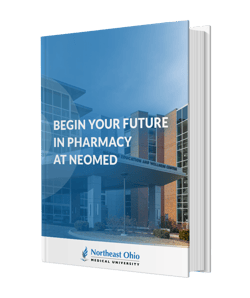
Access our eBook "Begin Your Future in Pharmacy at NEOMED" to learn more about what it takes to become a pharmacist.


About the author
Kelly jeroski.
Assistant Director of Admission
More Articles
Should you become a pharmacist, 4 tips for your pharmacy school interview, student spotlight: samira yasmeen.
- How to Write a Winning Pharmacy Personal Statement with Ease
- Great Ideas for Writing a Killer Pharmacy Personal Statement
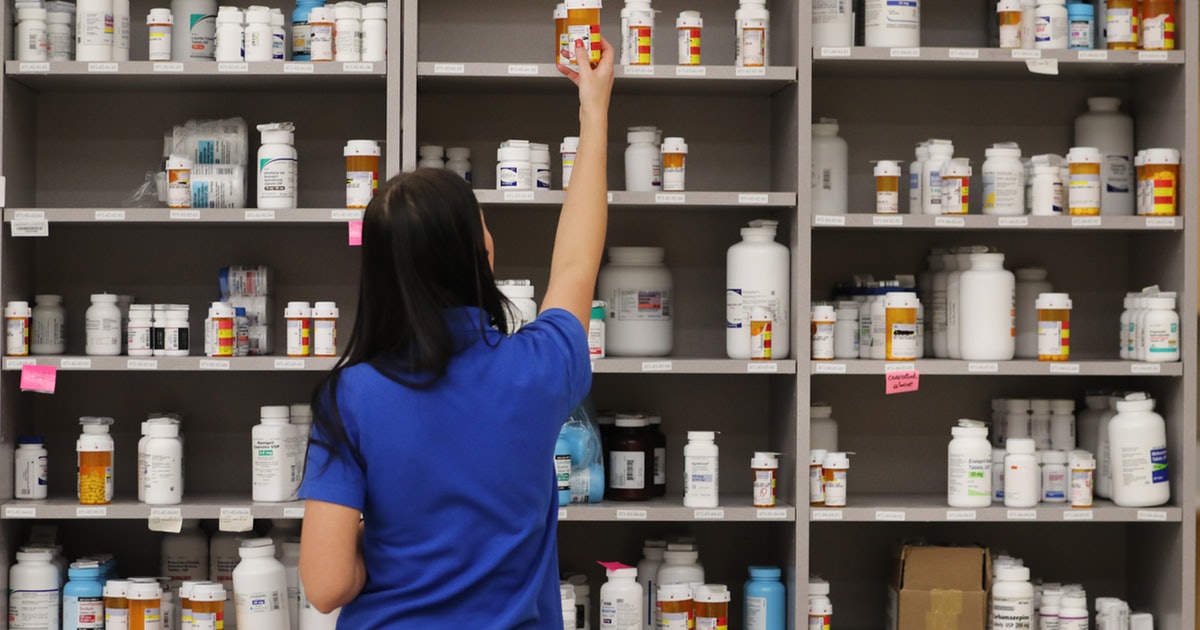
Why is it so important?
Why consider the target audience, how to write the best admission essay for a pharmacy school, the role of an introductory section, why use attention grabbers, your self-reflection, get a second opinion, how to impress your admission officer, dos and don’ts of creating the best pharmacy personal statement, what is a key secret, check compatibility, pharmacy personal statements examples, sample of pharmacy school personal statement – describing the development of student’s interests from the beginning of school, explaining my interest in pharmacy and how i am fit for this college – one of the most popular pharmacy school personal statement topics, my critical view on the current state of the pharmacy science – an alternative pharmacy school essay example., final words.
Writing essays can be difficult for some students. Creating an impressive pharmacy personal statement is a challenge. It’s hard for many people to do the following:
- Come up with an interesting subject;
- Organize important information;
- Make reasonable personal statement conclusions ;
- Grab readers’ interest;
- Reflect related skills or a life experience.
Realize the role it plays in the future career of pharmacists and take your pharmacy school personal statement very seriously. There are many people who want to pursue this career. Most of them have high test scores, good grades, personal achievements, and other strong sides, but only a few of them capture the attention of admission officers.
Use your pharmacy personal statement as a chance to succeed. It should present your personality to the committee. Make sure that it turns uninteresting information, such as awards, grades, courses, and test scores into prominent traits of your individuality. Your personal essay for a pharmacy school should highlight not only your academic accomplishments but also show you as an asset to its community. It makes your application noticeable.
Pay close attention to your target audience because you submit a personal statement to study pharmacy to admission officers who will read and evaluate it. They spend only a few minutes of each application. That’s why your paper should stand out. They analyze not only personal statements, but they also check science GPAs, research projects, letters of recommendation, transcripts, etc. Officers search for candidates with these basic traits:
- Strong analytical skills ;
- Critical thinking;
- High intellect;
- The ability to learn fast;
- Suitable personality for helping people.
Your pharmacy application should leave a lasting impression.
How to write a good personal statement to the chosen pharmacy school? The answer is simple - make sure that:
- It contains a catchy introductory paragraph;
- You use a strong opener;
- It includes a lot of self-reflection;
- You get a second opinion.
The introduction plays a decisive role because it can either grab readers’ interest or ruin your application success. Write it when the main body is ready. This paragraph serves many important functions, such as providing the audience with a short plan of what you will tell them further.
Use catchy attention grabbers in your opening lines or sentences to add more color to your paper without overdoing with intrigue. Opt for neutral starters if you share a really meaningful experience.
The best application to a pharmacy school involves a lot of self-reflection, sincerity, and honesty to make it easier for readers to relate to it. You may find it hard to share your life experiences and feelings, but it’s something you need to do to stand out. Don’t go overboard.
Ask other people (your friends or family) to read your final draft and share their opinions. Their advice can help you transform a mediocre paper into a brilliant and winning one because they encourage you to look at it from different angles. Otherwise, you may revise your essay many times in vain.
"Before I answer this I’d like to state upfront that there are three hurdles that applicants must clear to gain admission to the top colleges. So bear in mind that you can’t focus on just one quality for your candidacy at the expense of others. This said, most admissions officers to whom we have spoken agree that demonstrating fit is the one quality that most impresses them when reviewing applications. This means showing the school that you understand what makes it unique as well as what you have to offer and, consequently, why you sincerely want to attend that school. Far too many applicants view the admissions game as purely numeric. Smart applicants realize they need to put 100% of their best effort into each stretch school they target. Consequently, they understand why it is better to apply to 10 schools with each application reflecting 100% of their best effort than to get stretched too thin and apply to 20 schools with each application only reflecting 50% of their best effort. So, in conclusion, be sure to spend the time to demonstrate a strong fit with each stretch application you submit. Quality will triumph quantity every time." By admission consultant David Petersam.
If you lack enough experience in this field, look at dos and don’ts because they will guide you in the right direction. What should you do?
- Start early to set aside enough time to complete all stages;
- Keep the target audience in mind;
- Use a correct structure;
- Organize all ideas to keep readers’ interest;
- Use proper punctuation , grammar, and tone;
- Mention future goals;
- Reveal your true personality;
- Edit and proofread a final draft a few times.
What are the things that can ruin your admissions essay?
- Repeating the same ideas (they make your application to a pharmacy school boring and weak);
- Including a tangential discussion;
- Being in a hurry;
- Exceeding a word count;
- Making excuses;
- Using redundancies and fillers;
- Expressing your viewpoints on controversial topics;
- Underestimating the chosen profession;
- Making your pharmacy school statement too emotional or personal;
- Listing irrelevant achievements.
Take into account the basic criteria that define the overall success of your pharmacy school application:
- Appropriateness;
- Time management.
The key secret of writing a successful application is to convince admission officers in your interest and dedication to the chosen specialization. How can you do that? Tell them about the impulse that led to this decision. Explain your desire to pursue a pharmacy career path clearly to let the committee understand your reasoning and logic behind it.
Know why you want to prosper in this profession. Give the answers to some basic questions to determine the following:
- What attracts you in this field?
- Why did you choose pharmacy?
- What does a pharmacist do?
- What inspires you to study hard?
- The life event that spurred you to choose this career.
- How you differ from other applicants?
Helping people was my passion beginning from studying in elementary school. At first, it was mostly assisting my parents and neighbors but later I began reading the special literature and even developed a specific interest in chemistry and microbiology books (as well as related free online content on related Web resources). This was a powerful motivation for me to achieve higher grades during my studies because of understanding of the necessity to enter a higher education institution afterward. After graduating from high school I had to choose between medical sciences and pharmacy services fields and finally decided to stay with the latter.
Applying to this college means a lot to me. I believe that after studying here I can obtain the most valuable knowledge and support to pursue my career in the area of my interest and also to bring some real value and positive results to the society which generally summarizes my ISAT personal statement on this decisive day. Pharmacy terminology is like a special language which I have started to learn and hope to master completely quite soon.
Looking for dental school personal statement or personal statement for residency ? Browse our library, you will find everything there with ease.
Chemistry and biology were my favorite subjects during the whole process of studying, particularly because some of my relatives have been working in these spheres. There were a lot of specialized books (not only in the English language) on related subjects at my home so as a passionate reader I have explored all of them early enough, during my free time. Eventually, it led me to building solid plans of continuing my learning in a pharmacy college, improve my medical skills and obtain great experience.
After graduating from my high school with a diploma with honors, I feel prepared to enter this college and to successfully obtain a degree which will allow me to proceed to higher levels of scientific research and reach the maximum of content because of this knowledge. My skills include all basic kinds of chemistry operations, basic knowledge about microbiology, familiarity with most widespread kinds of germs and medicine (antibiotics and others), first aid services, vitamins and their influence on children and adults, volunteering, etc. In this letter of intent, I would like to express my hopes and dreams which might come true as a result of this application day.
Unlike many people I know, I’ve never regarded science as something far away from daily life, especially pharmacy and chemistry which are so much involved into everyone’s existence. Observing tangible effects of work, bringing support to the society and helping out people that are close to me – these are the main factors motivating me to proceed with professional studying in the U.S. or international pharmacy field. This is the first of my personal statements for this college and I am happy for this opportunity to be free to speak up.
Apart of basic chemistry and biology knowledge received in the process of my general learning and additional online training, I have read a lot of specific research works and eventually became familiarized very well with the history of pharmacology theory and practice in the U.S and Canada beginning from the late 19th century up to the modern day, particularly with problems and challenges which have been noticed lately in this sphere ( antibiotics overuse is one of the brightest examples). My dream is to play a notable part in dealing with those challenges and making certain contribution to the development of better results of medicine services for everyone!
Your admission essay is a great chance to show who you really are and focus on your positive traits. What if you can’t write it yourself? Get expert help not to compromise your academic future. Hire professional personal statement writers to do this job and let them help you succeed and submit an impressive application and cool personal statements that support you with ease.
If you are applying for a nursing degree at university, then you should attach a personal statement to your application and take care of its stellar content. Being one of the most important selling points in your bachelor degree application, your nursing personal statement should demonstrate that yo...
Some students think that the residency personal statement (RPS) is the same as the graduate essay, but it’s not quite right. Personal statement residency is one of the great ways to share your character and abilities and plans for your career as a physician. One of its goals is for applicants to add...
If you want to become a law school student, you don’t have any chance to explain to the committee why you’re a perfect fit, except for your application. Look for legal examples to get the academic consulting necessary to submit a successful law school personal statement and succeed at the interview....
Writing the Personal Statement for Pharmacy School: A Checklist
At some point in your life, you’ve likely written a personal statement. Perhaps while applying to your undergraduate program, some of your schools required you to include an essay describing your achievements, yourself, and what you hope to accomplish in your time at their university. Similarly, many pharmacy programs will require you to write a personal statement as well for their application.
This, however, is different. Not only will you want to highlight your relevant accomplishments and address why you want to become a pharmacist to truly stand out . With so many applicants during each cycle, admissions officers use this personal statement to gauge whom they would want to speak with for an in-person interview.
At this phase of the application journey, you've narrowed down the pharmacy schools you’re applying to. Your transcripts are in, letters of recommendations are ready, and it’s time for your pharmacy personal statement. The good news is that unlike undergraduate applications that sometimes have different prompts you must answer for different schools, your one pharmacy school personal statement will be sent to every program through your PharmCAS application. That also leaves an interesting challenge: Even if you have a favorite, you need to consider how you want to approach writing this personal statement as it shouldn’t be tailored toward one specific school.
When it comes to writing a pharmacy school personal statement, the most common pitfall students experience is the lack of effort placed into their writing. While your grades may be exceptional and your letters of recommendations prove that your student-teacher relationships are healthy and you are a pleasure to have in class, having a generic pharmacy personal statement doesn’t differentiate you from other qualified applicants. If all applicants have the first two things covered already, then obviously the personal statement may be the shining piece to the application. For most students, writing this statement will be the toughest part of the application process.
Begin to formulate your narrative. Lay out the structure and the different sections. There’s no specific format that pharmacy schools are looking for, so make this personal statement unique to yourself. As mentioned, the “cookie cutter” approach to this part of the application is where most students stumble. Use your time wisely and start early . Additionally, you can easily find a sample personal statement on various websites to help structure your thoughts. However, keep in mind that these should be used only as samples and that you shouldn’t rely on them to format your own statement.
Each pharmacy school program wants students who demonstrate a tenacity that will help them succeed at their respective programs. One way to approach the writing of your pharmacy school personal statement is from the point of view of the admissions committee. Anyone charged with reading thousands of applications will probably focus on certain questions that signal a level of quality about the rest of the personal statement.
First, what's the reason that this student is choosing pharmacy as their career? Are they doing this for the income or for genuine interest in providing the best care for patients? Does the applicant demonstrate thoughtful understanding of their strengths and weaknesses? Do their ideals align with the mission statement of the school of pharmacy? Each reviewer may concentrate on different questions, but they want to see you feel a personal drive for a career as a pharmacist. Place yourself into the seat of an application reviewer and start to formulate different questions that you’d potentially ask students. Try answering these questions and see how genuine your answers are. How you answer may decide if you want to continue to pursue this pharmacy school path.
One universal method that many writing courses teach you is to always have a strong opening statement. Use this as an opportunity to begin with a personal story relating to why you decided that pharmacy is the right career for you or maybe an inspiring quote that has always resonated with you. Chances are that the reviewer may have already gone through a handful of applications already, so your first few sentences should stand out. You want to be able to make an impression from the beginning while showing an earnest drive to spend a career as a pharmacist.
Once you’ve engaged them effectively, it’s time for the “meat” of the personal statement. What do pharmacy application committees truly want to hear?
They want to learn more about you before meeting in a live interview setting. Tell your own story succinctly but without cutting corners. Briefly describe how you learned to overcome obstacles like that to better yourself and those around you. Sure, you can write about your most relevant academic accomplishments. But go beyond that.
Discuss how certain clubs and organizations have helped you progress through your undergraduate experience and how those organizations may have led you to pursue the path of pharmacy school. Highlight the different leadership positions that you may have held in college that have helped mold you into the leader that you see yourself as today. After setting those up, discuss the skills you’ve acquired to help you in pharmacy school and how they’d make you a better pharmacist in the future. When mentioning your relevant academic studies, avoid repeating pharmacy college admission test (PCAT) scores or that 4.0 GPA that you had achieved. The committee has this information in front of them as they are reading; they don’t need to be reminded.
Talk in detail about your relevant work experiences, such as the research or part-time job in a pharmacy. Discuss how these different work experiences furthered your commitment to the profession. Identify what aspects of the pharmacy setting may have attracted you and what you ultimately have been learning from these experiences. Some students come into this part of the application process without work experience. That’s okay. You can highlight any volunteer work related to healthcare or pharmacy.
Finally - and we can’t stress this enough - keep your writing professional. You’re making an impression on a professional committee and as much as you want to make your statement sound lighthearted, keep in mind that the reviewers’ time is at a premium for reviewing the essays as well as the interviews in the next round. Be succinct, direct, and human.
Remember to keep our advice top of mind:
The goal of your personal statement is to showcase why you would be the most ideal pharmacy student and why your traits/qualities are reflective of a pharmacist.
Be as authentic as possible when detailing why you want to be part of the PharmD program.
GPA and PCAT scores can only get you so far. Your personal statement is a chance for you to stand out in front of the other applicants that apply to the same pharmacy program as you.
Remember, perfecting the personal statement takes time and your admission may depend on how much effort you ultimately put into your writing.
Click here to get matched to a PharmD program that best fits your profile.
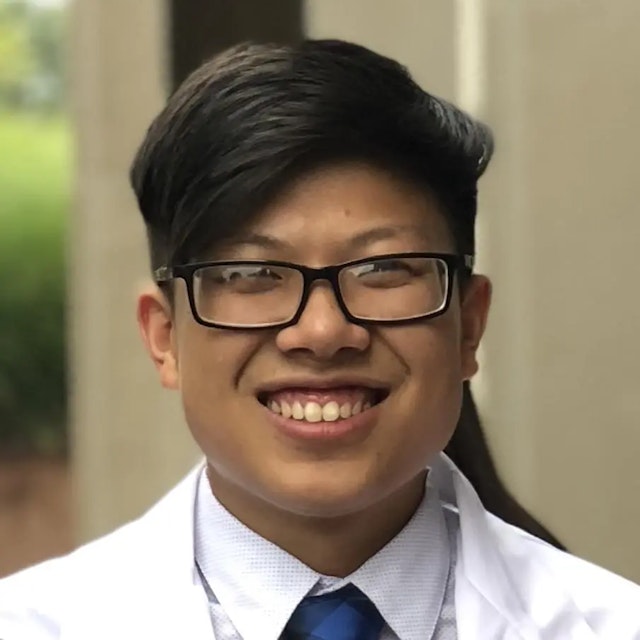
Hong Chen, PharmD
My name is Hong Kui Chen and I am a graduate of The Ohio State University Pharmacy Class of 2022. I am currently working as a clinical research associate at Medpace, Inc, a contract research organization based in Cincinnati, Ohio. My work mainly consists of traveling to various sites around the country and providing protocol training on new clinical trials or monitoring data. While I enjoyed the traditional pharmacy role of working in retail or hospital, I wanted to expand and pursue this non-traditional role to see how clinical trials operate. I have a passion for being able to impact patients in a grand scale and even though I don’t have the 1-on-1 patient interaction, the work that I do can have long lasting contributions to overall patient health.
Opinions and information published by the author here on PharmDDegree.com are of my own and do not necessarily represent the views or opinions of my employer.
Do Not Sell My Info
Pharmacy School Personal Statement Tips

Many programs require a personal statement as part of the pharmacy school application. This is essentially an essay that addresses why you want to be a pharmacist, and how your personal background and achievements support this goal. This writing sample provides the only opportunity to express yourself in writing to differentiate your application from your competitors. A significant effort should be made to have the best possible personal statement that addresses the interests of the admissions committee.
- How to write a pharmacy school personal statement

PharmCAS provides general guidance on how to craft a personal statement. Each year, they provide a prompt that directs the topic of the statement. They recommend that applicants do not tailor their writing to one program, because you will only be permitted to submit one personal statement per application cycle. PharmCAS will send this statement to all programs to which you are applying that year.
For many applicants, the personal statement will be the most difficult part of the application preparation. Applicants know this is important, so they may overthink it or suffer from writer’s block. A useful exercise before you begin writing is to think about the answers to the following questions:
- Why do you want to be a pharmacist? You should demonstrate a genuine interest in the profession and helping people.
- What experiences have prepared you to be successful in this career?
- What qualities do you most admire in pharmacists? Can you demonstrate that you have these same qualities through your academic achievements or work experience?
- What makes you stand out as a unique candidate? Do you have real-life experience? Have you volunteered in health care settings?
- Is there any deficiency in your application that you want to proactively explain? This may be your only opportunity to explain any low grades, gaps in education, or suboptimal PCAT scores. However, do not make excuses; own your mistakes and show how you have learned from them.
The personal statement should address the topics that you think are the most important to paint a picture of you as a successful pharmacy student.
The personal statement should address the topics that you think are the most important to paint a picture of you as a successful pharmacy student. Mission statements of the schools to which you are applying can help direct your writing, but you should keep the statement general enough that it can resonate with the admissions committees of any program.
Ultimately, the personal statement is a story that will show the admissions committee that you are a unique person who is worth more than their GPA and PCAT scores. The statement should be an authentic representation of your story and give the reader a glimpse into what you would be like as a pharmacy student and professional. The text should show, not tell, the reader what you bring to the table. A strong opening is important: Grab their attention with a relatable anecdote or quote.

One approach to writing the statement is to brainstorm all the questions above, taking notes as you think of the answers. Then, sketch an outline of the statement that will help get the juices flowing. Try to write the first rough draft in one setting, not worrying about the exact words. You can go back later to refine wording, add details, and revise. Lastly, you should proofread the statement multiple times. Essays riddled with grammatical errors and typos send a message to the reader that you do not pay attention to detail , which is an important skill for pharmacists. Consider having another person who is unbiased proofread it. Numerous companies offer professional essay proofreading and editing services, such as Scribd .
- What does a school look for in a personal statement?
Each program is looking for well-rounded students who are likely to succeed at their institution. They do not expect all students to be the same.
Each program is looking for well-rounded students who are likely to succeed at their institution. They do not expect all students to be the same. Diversity is desirable, so don’t pretend to be something you are not because you think it is what they want to hear. Admissions committees can see right through disingenuous statements. Content that schools may be looking for include the following:
- Is this person applying to pharmacy school for the right reasons? You won’t be happy or motivated in a job that you are doing only for money, job security, or to meet someone else’s expectations.
- Do they understand the job and its demands? Speak to any relevant experience you have working, volunteering, or shadowing pharmacists.
- Has the applicant demonstrated personal growth in the years leading up to their application? If your grades improved in the last year, you can explain that it shows your commitment to education and renewed work ethic. If you took on new extracurricular responsibilities or work assignments, highlight any leadership skills you’ve developed.
- Is the essay organized and clearly written? Communication skills are important for pharmacists, because they communicate with customers, physicians, and insurers daily.
- Has the applicant explained any weak points in their application? Admissions committees realize that life can be messy. Be honest if personal circumstances affected your grades or PCAT scores. Make it clear that you’ve moved past these circumstances and they won’t impact your ability to be a successful pharmacy student. However, don’t make excuses for shortcomings that don’t have a good explanation.
- Do they demonstrate a “fit” for the values of the program? Use anecdotes to demonstrate that you live their values and mission.
Learn More about Pharmacy School Requirements by State
- AR Arkansas
- CA California
- CO Colorado
- CT Connecticut
- DE Delaware
- IL Illinois
- KY Kentucky
- LA Louisiana
- MD Maryland
- MA Massachusetts
- MI Michigan
- MN Minnesota
- MS Mississippi
- MO Missouri
- NE Nebraska
- NH New Hampshire
- NJ New Jersey
- NM New Mexico
- NY New York
- NC North Carolina
- ND North Dakota
- OK Oklahoma
- PA Pennsylvania
- RI Rhode Island
- SC South Carolina
- SD South Dakota
- TN Tennessee
- VA Virginia
- WA Washington
- DC Washington, DC
- WV West Virginia
- WI Wisconsin

- What should you avoid in a pharmacy school personal statement?
Admissions committees have numerous applications to review. You want to make sure every sentence in your personal statement adds value and has no chance of leaving a negative impression. Here are examples of things to avoid:
- Don’t repeat your transcript and PCAT scores. They already have these in their file. Essay word counts are limited, so make the most of every word of your essay to provide new information.
- Don’t write off topic. Tell your story directly and concisely. Going off on a tangent or adding words just to make it appear longer will distract from the message you are trying to convey.
- Don’t include irrelevant academic achievements. No matter how proud you are that you won the geography bee in fifth grade, it isn’t relevant to your aptitude for success in a pharmacy career.
- Do not plagiarize. This is a major sin in academia. It will get your application tossed to the “no” pile without a second thought.
- Avoid clichés. Cue eye roll from the admissions committee who is forced to read hundreds of statements, many with poor attempts to use clichés or humor.
- Do not talk about controversial topics. The essay should be professional. Topics like religion, personal emotions, money, and politics have no place in the workplace.
- Don’t have grammatical errors or spelling mistakes. Hire a professional editor to proofread your writing, or use a do-it-yourself tool, such as Grammarly .
Pharmacy school personal statement examples
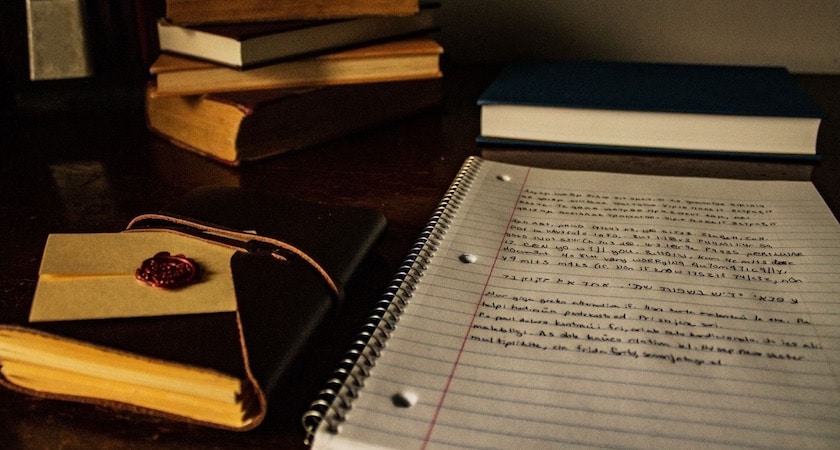
Personal statements are one of the most important components of your application. They are your only opportunity to show the admissions committee that you are more than your GPA and PCAT score. This is your chance to stand out from the crowd. The quality of your essay will be determined by how much work you put into the writing. Several examples of essays from students who were accepted to pharmacy programs can be found on the internet at sites like Studential and Applytouni . Reading these can give you an idea what a good statement looks like before you begin writing your own.
- Additional Resources:
- Pharmacy School Directory
- Pharmacy School Letter of Recommendation Tips
Request Info
Complete this form to request information directly from PharmD program option, tuition, financial aid and more.
Highest Level of Education High School Some College Associates Bachelors Masters or Higher
Phone Number
"By pressing "Request Info" I hereby consent and agree to receive autodialed calls and texts or pre-recorded messages by or on behalf of and PharmacySchoolFinder at the phone number(s) provided above. I understand that the foregoing consent is not a condition of program application or enrollment and agree that the terms of the privacy policy apply."
All fields required
Newsletter Signup
Login your account.
Enter your e-mail address and your password.
- Remember Me Forgot Password?
Register Your Account
Create your account. It will take less then a minute
- I agree to the Terms of Service & Privacy Policy
- Prospective Student Inquiries [email protected]
- General Inquiries [email protected]
- Job Posting Request
- Building Hours & Maps
- Prospective Students
- Current Students
What's Happening
Student resources, quick links.
- Alumni & Friends
Update Your Information
Academic departments, clinical pharmacy, medicinal chemistry, pharmaceutical sciences, research in clinical pharmacy, research in medicinal chemistry, research in pharmaceutical sciences, research cores and services, biointerfaces institute, michigan drug discovery.
- Michigan Institute for Clinical & Health Research
Translational Oncology Program
- Faculty Publications
- Research Opportunities
- Research Collaborations
UM Pharmacy Professor Research Outreach (PRO)
About the college, message from the dean.
- Dean Search
Accreditation
New cop building, our history, our leadership.
- Our Mission, Vision & Organization
Teaching Excellence Awards
Job openings.
- Diversity, Equity & Inclusion
Department Contact Info
Emergency information.
- COVID-19 Updates
Sexual and Gender-Based Misconduct
- Alternative and Complementary Medicines
- Diagnosis and Health Conditions
- Healthy Choices
- Information for Caregivers
- Medication Information
- Other Resources
- COP Directory
Search form
- Alumni & Friends
Why U-M Pharmacy?
Recruitment events, student blogs, career potential, program overview.

- Information Request Form
- PharmD Program
- Experiential Education
- Pharmacy Phamilies
- PharmD Curriculum
- Assessments
- Pharmacy Student Ambassadors
- Pre-Pharmacy Student Organization (PPSO)
- PhD in Clinical Pharmacy
- PhD in Medicinal Chemistry
- PhD in Pharmaceutical Sciences
- MS in Integrated Pharmaceutical Sciences
- Career Flexibility
- BS in Pharmaceutical Sciences
- Program Goals
- Fast Track to PharmD
- Student Services
- Research and Honors Program
- Student Outcomes
- Dual Programs
- Dual PharmD and MBA Program
- Dual PharmD and MPH Program
- Dual PharmD and PhD Program
- Post-Doc in Clinical Pharmacy
- Residency Program
- Ambulatory Care Enrichment Program
- Research Experiences for Undergraduates Program
- Eligibility
- Program Schedule
- Application
- Pharmacy Scholars Program
- Frequently Asked Questions
- Income Guidelines
- Assignment of Credit Hours
- Pharmacy Community College Connect
- Postdoctoral Collegiate Fellows Program
- Expectations of Faculty Mentors
- Faculty Mentor List
- Review & Selection
PharmD Program Admissions
- Application Overview
- PharmD Prerequisites
- Preferred Admission Programs
- Applicant Characteristics
- PhD Program Admissions
- MS Program Admissions
- Bachelors Program Admissions
- Funding Your Education
Financial Aid Brochure
- Tuition and Fees
- PharmD Scholarships
- Graduate Support
Student Organizations
- Student News
Course Descriptions
Student affairs.
- Financial Aid & Scholarship
- Advising & Registration
- Career Counseling
- Personal Counseling
- Campus Resources
- Student Affairs Directory
Career Connections
Student handbook, access pharmacy, campus groups, cornerstone learning, outlook in the cloud, rx preceptor, taubman library, wolverine access.
- Prescott & Emeritus Celebration
Alumni Awards
- Alumni News
Board of Governors
- Nomination Form
- Board Member Position Description
Job Opportunities
Submit personal news, priorities to support, gift planning, update your alumni record.
- News & Events
- Previous Faculty Spotlights
- Department Metrics
- Research Laboratories
- CPTS PhD Program
- CPTS Fellowship Program
- Post-Graduate Residency
- REACH Fellowship
- Infectious Diseases Fellowship
- ACE Program
- Vision and Mission
- Department Directory
- Simulated Patient Program
- Biochemical NMR Core
- Clinical Pharmacogenomics Laboratory
- Pharmacokinetic and Mass Spectrometry Core
- Vahlteich Medicinal Chemistry Core
Michigan Institute for Clinical & Health Research
- Previous Seminars
- Newly Awarded
- Available Funding
- Grant Tools "Coming Soon"
- Giving Tuesday
- Faculty News
- Research News
- Annual Report Archive
- Upcoming Events
- Newsletter Archive
Our Mission, Vision & Organization
- COP Organization Chart
- COP Strategic Plan
Diversity, Equity & Inclusion
- Dean's Vision Statement
- DEI Strategic Plan
- Upcoming News & Events
- REU Program
- Education & Training
- McKesson Foundation Health Equity Speaker Series
- Resources & Support
- Concern Reporting
- Emergency FAQs
- Stay Informed!
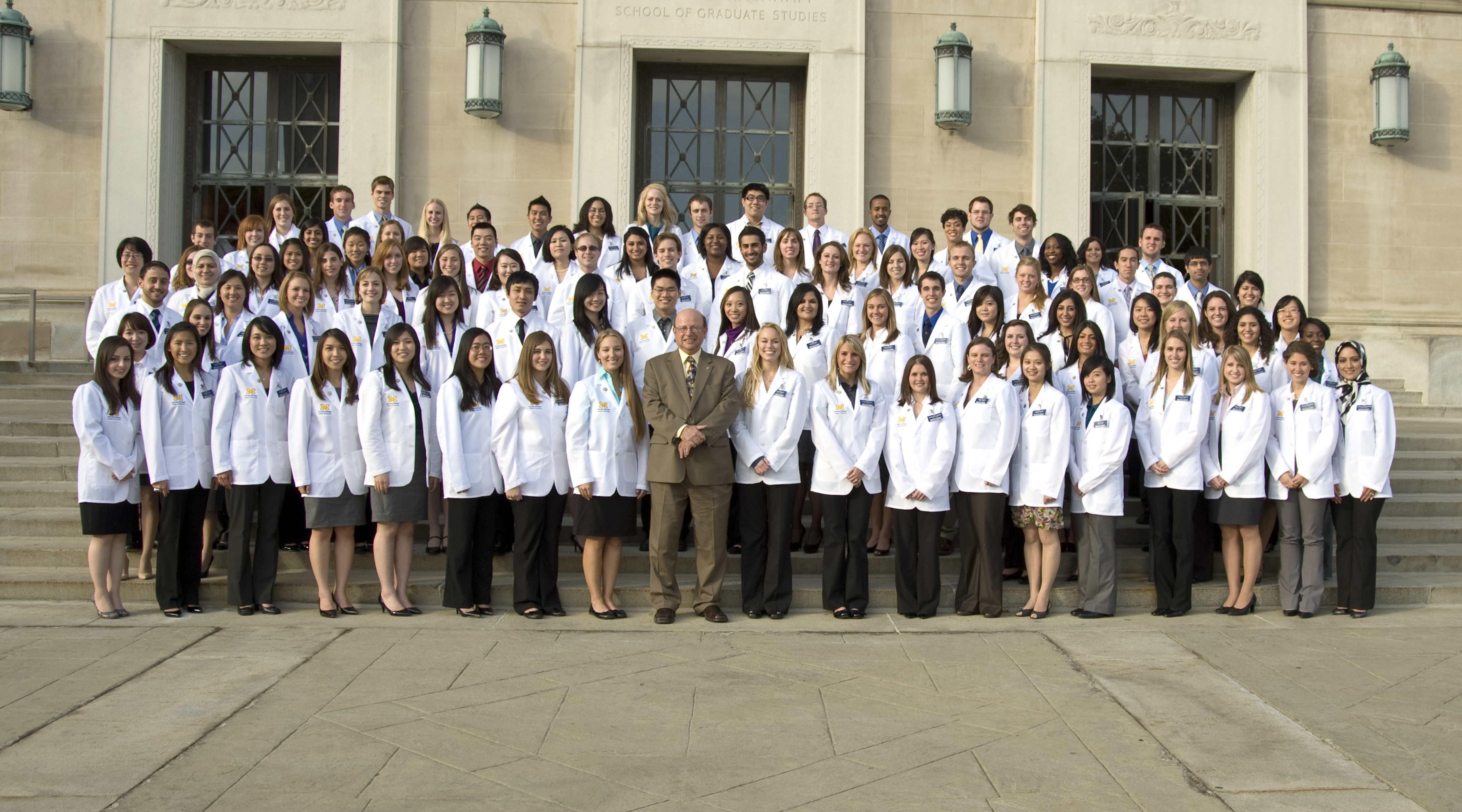
Pharmacy Student Guide
Guide for Prospective & Incoming Students!
At Michigan, we consider a lot more than grade point average when reviewing your application for admission. We also take into account such factors as life, work, and health-care patient experiences; critical thinking and decision-making skills; leadership ability; the academic strength of previous institutions you’ve attended; a desire to make a difference in the lives of others; your admission essay and letters of recommendation; whether you maintained a grade of B (3.0) or better while carrying a full (14–16 credit hour) undergraduate course load.
That is why we encourage you to follow through on your interest in attending the University of Michigan College of Pharmacy. Do not prejudge your qualifications: Apply!
The PharmCas Application deadline for Fall 2024 has been extended to May 1st, 2024.
We no longer require the PCAT examination for the current and future admission cycles .
If you are uncertain about your next step, or would like more information about Michigan’s PharmD program, we encourage you to call us at (734) 764-7312, e-mail us , or review our website.
Listing Row

Thinking about applying to pharmacy school? Below is a compilation of resources to help applicants learn more about the PharmCAS admissions process.
- Applying to Pharmacy School Infographic : View this infographic to see where you fit among accepted applicants and to help you in preparing to apply through PharmCAS.
- Virtual Pharmacy School Interview Do’s and Don’ts : In current times, it is likely that applicants will conduct their pharmacy school interview in a virtual format via webcam or phone. The technology used will vary based on the institution and the ability of an applicant to access it. However, the basic do’s and don’ts before, during, and after the virtual interview remain universal. Learn more here .
- 2023-2024 PharmCAS Applicant Webinar : Interested in some helpful tips to help navigate the 2023-2024 application? The recording of the 2023-2024 PharmCAS Applicant Webinar is now available. To access the recording, enter the required information on the webinar link .
Want more PharmCAS tips and updates? Follow us on Instagram , Facebook , and Twitter !
The PharmCAS School Directory and Compare Programs feature provide a way for future pharmacy students to compare pharmacy schools across the country in just a few simple clicks! This video tutorial walks applicants through how to get the most out of these useful tools.
Watch the video below for some key tips to help you with the PharmCAS application process.

IMAGES
VIDEO
COMMENTS
Most pharmacy programs in the United States use a central application portal called PharmCAS (Pharmacy College Application Service) to distribute application materials like transcripts, test scores, and personal statements to individual university programs. Personal statements for PharmCAS must be 4500 characters or less, including spaces.
Pharmacology Personal Statement Example 1. I am of Haitian descent and my country is one known for its harsh living conditions. There is a constant struggle for survival and poverty is an endemic burden. Despite numerous advances in technology, Haiti has remained the least-developed country in the Western Hemisphere...
As part of your brainstorming, look at successful personal statements. Websites like Studential and ApplyToUni can give you a good idea of what spelled success for past applicants. Or, if you know anyone who went to pharmacy school already, you can ask them for their best tips. 2. Outline and Draft.
Short Application Essay for Law School. My first personal introduction to the profusion of environmental laws in our country came while working for my father. I worked for over eleven years at my father’s business, an Exxon Service Center. While there, I performed every job, task, and duty associated with the operation of a service station.
Tell them about the impulse that led to this decision. Explain your desire to pursue a pharmacy career path clearly to let the committee understand your reasoning and logic behind it. Know why you want to prosper in this profession. Give the answers to some basic questions to determine the following:
After setting those up, discuss the skills you’ve acquired to help you in pharmacy school and how they’d make you a better pharmacist in the future. When mentioning your relevant academic studies, avoid repeating pharmacy college admission test (PCAT) scores or that 4.0 GPA that you had achieved.
Avoid clichés. Cue eye roll from the admissions committee who is forced to read hundreds of statements, many with poor attempts to use clichés or humor. Do not talk about controversial topics. The essay should be professional. Topics like religion, personal emotions, money, and politics have no place in the workplace.
Checklists help keep your organized, and PharmCAS has created a great checklist in preparing a pharmacy school application. 3. Study hard for the PCAT, if you choose to take it. The Pharmacy College Admission Test, or PCAT, is not required for admission to the UF College of Pharmacy.
The PharmCas Application deadline for Fall 2024 has been extended to May 1st, 2024. We no longer require the PCAT examination for the current and future admission cycles . If you are uncertain about your next step, or would like more information about Michigan’s PharmD program, we encourage you to call us at (734) 764-7312, e-mail us, or ...
The PharmCAS School Directory and Compare Programs feature provide a way for future pharmacy students to compare pharmacy schools across the country in just a few simple clicks! This video tutorial walks applicants through how to get the most out of these useful tools. Watch the video below for some key tips to help you with the PharmCAS ...